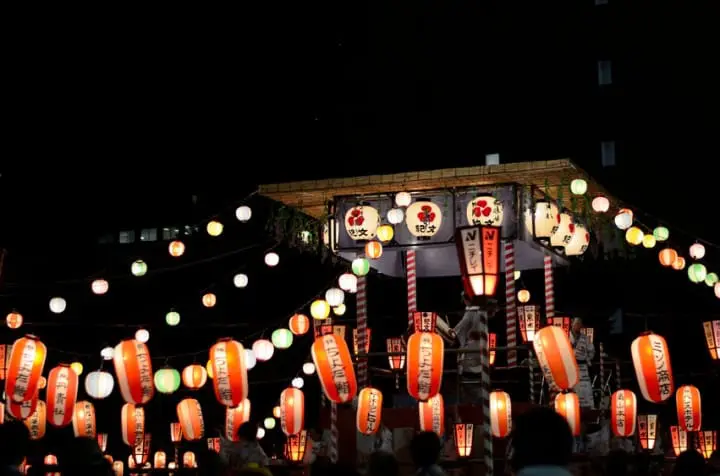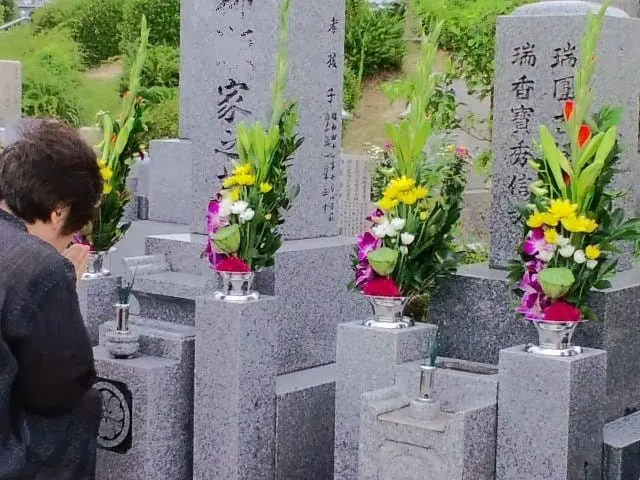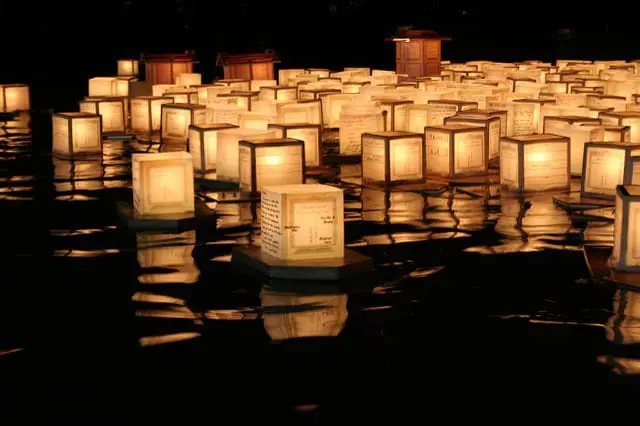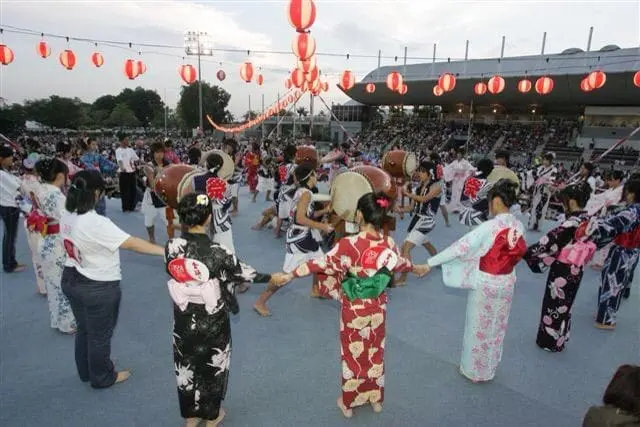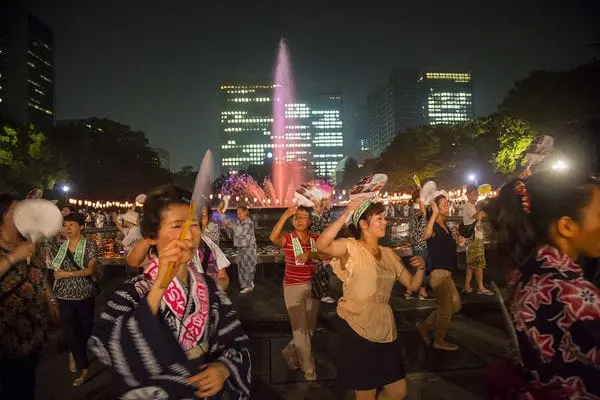Start planning your trip


Obon is one of Japan's major summer festivals. It is a celebration worth experiencing to get a glimpse of Japan's traditions. We introduce here the feature of the exciting Obon celebrations held in Yokohama.
Obon is a Japanese festival celebrated to pay homage to the ancestors. If you are in Japan this summer, you will most probably have the chance to experience an important aspect of Japanese culture through this holiday.
In Tokyo, Yokohama, and in the Tohoku region generally, Obon is celebrated in August. Let's see how it is celebrated in Yokohama, one of the most vibrant cities of Japan.
Obon, sometimes referred to as Bon Festival in English, is a Japanese custom that is believed to have been celebrated for over 500 years. Obon is a mainly Buddhist tradition that involves honoring ancestors through visiting family graves, as well as inviting the spirits of the ancestors home and then back into the spirit world through the use of lanterns.
Obon lasts for about three or four days in which various rituals are carried out. This special series of ceremonies culminates with a special dance called Bon Odori.
During this time of the year, although it is not a national holiday, most workers and students are given time off, both to visit the graves of their families with relatives and to take a summer vacation.
Traditionally, lanterns are hung in front of the houses to guide the ancestors' spirits, Obon dances (Bon Odori) are performed, graves are visited and food offerings are made at house altars and temples. At the end of Obon, floating lanterns are put into rivers, lakes or seas in order to guide the spirits back into their world.
In the past, when the lunar calendar was used in Japan, Obon used to be celebrated around the time of what is now July 15th. However, after the Gregorian calendar was implemented, Obon began to be celebrated around the time of August 15th in most areas instead.
There are still some areas in Tokyo and Yokohama that hold celebrations and practice Obon’s customs in July, on the so-called “Kyubon” or “old Bon”. Below we introduce some of the activities performed during the three days of Obon.
The beginning of the celebrations is called "Obon-iri". This is when the families of the deceased prepare to welcome their ancestors, decorating the altar in their home and making offerings.
Outside the house, the so called "mukaebi" *(welcoming fire) is lit. This fire is believed to have to role to invite the spirits to their old homes. The graves of the deceased are visited and cleaned during this time, and some families light their mukaebi or lantern at the grave itself.
A memorial service is held for the ancestors or a Buddhist Obon ceremony is held if it is the first Obon for a deceased family member.
The okuribi ("sending off" fire) is lit, guiding the spirits back to their resting place. Lanterns are often placed on a nearby river to represent the spirits’ return to the other world.
If you have the chance, do watch or participate in the ceremony called toro-nagashi, when floating lanterns are released into the river to float down into the ocean. This symbolizes the act of sending one’s ancestors spirit back to the other world. The sight of the lanterns floating above the water is enchanting and worth while to behold.
In the proximity of temples, festivals are held during this time. This is where you can enjoy listening to the sound of taiko drums. The streets are filled with the sound of traditional Obon music, often combined with modern pop music.
Especially in the Minato Mirai area of Yokohama, one can listen to the exciting rhythms of the taiko drums while enjoying the local delicacies available at the food stalls.
Traditional Bon-Odori performances are held in the evenings. In Yokohama, you can watch these dance performances and even participate if you feel like it! Everyone is welcome. The art is to not be too self-conscious and just copy the movements of the other participants. Everyone participates in the Bon-Odori folk dance from seniors, men, women and children, enjoying the lively atmosphere.
In spite of the rather somber-sounding customs, Obon festivals inspire the feeling of the perfect summer festival. Parades, performances, food stalls, music, and fireworks are what you can expect during these events. If you are traveling to Japan this summer in time for Obon, this is one of the festivals that are public and open to anyone who would like to participate.
Obon is a very special time of year with modern celebrations held along with the traditional rituals. This festival gives us some insight into Japan’s Buddhist roots as well as into the unique ways each part of the country celebrates the holiday and carries out its fun-filled summer festivals.
If you plan to be in Japan in July or August, it's certainly worth attending an Obon or summer festival, especially now that you are familiar with the customs.
Just a Nomad Exploring Japan - The Nihonjin Way!
